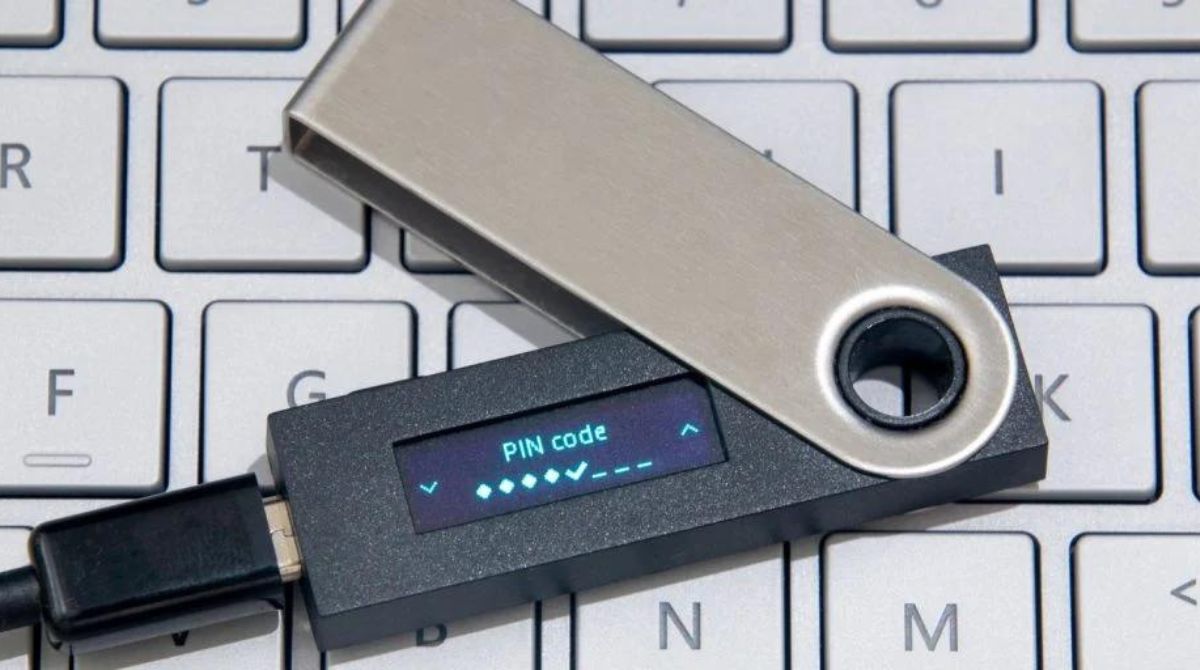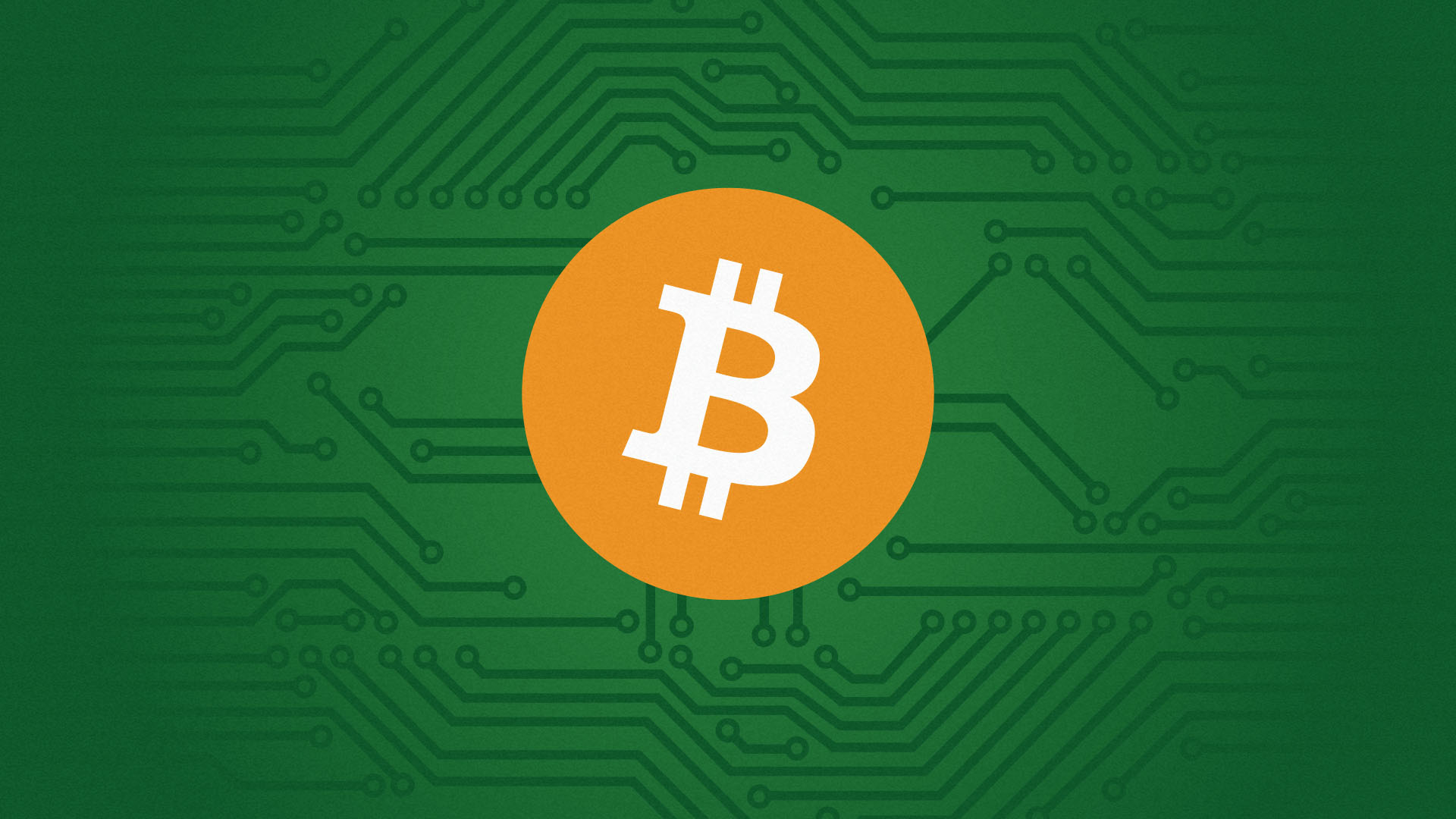Introduction
Welcome to the world of Bitcoin, the decentralized digital currency that has gained significant popularity over the past decade. As more individuals and businesses embrace Bitcoin, it becomes crucial to understand how to store it securely. In this article, we will explore the various storage solutions available to ensure the safety of your Bitcoin holdings.
As a cryptocurrency, Bitcoin exists solely in the digital realm. Unlike traditional currencies that are physically stored in banks, Bitcoin requires a different approach to keep it safe. With the potential for hacking, online theft, and other risks, it is essential to take adequate precautions to protect your Bitcoin assets.
Whether you’re new to Bitcoin or a seasoned investor, understanding the importance of storing Bitcoin securely is paramount. When stored properly, your Bitcoin is safe from unauthorized access, ensuring that you maintain control over your digital wealth.
Key factors to consider when storing Bitcoin include accessibility, security, and convenience. It is crucial to strike a balance between these factors to ensure ease of use while maintaining a high level of protection.
In the following sections, we will explore different storage options, ranging from hardware wallets and software wallets to paper wallets and offline storage methods. We will also discuss the use of multi-signature wallets and the importance of regularly updating and backing up your wallets. Lastly, we’ll provide essential security best practices to enhance the protection of your Bitcoin.
By the end of this article, you will have a comprehensive understanding of the different storage solutions available for Bitcoin and be equipped with the knowledge to choose the right method for your needs. So, let’s dive in and explore the world of Bitcoin storage!
Importance of Storing Bitcoin Securely
When it comes to Bitcoin and other cryptocurrencies, security is of utmost importance. Due to its decentralized nature, Bitcoin transactions cannot be reversed or refunded, making the security of your digital assets a critical concern.
One of the primary reasons for storing Bitcoin securely is to protect against theft and unauthorized access. Since Bitcoin is entirely digital, it is vulnerable to cyberattacks, hacking, and phishing attempts. Losing your Bitcoin due to a security breach could result in irreparable financial loss.
Moreover, storing Bitcoin securely provides peace of mind. By implementing proper security measures, you can have confidence in the safety of your digital assets, allowing you to focus on leveraging the potential benefits of Bitcoin without the constant worry of losing funds.
Another essential aspect of secure Bitcoin storage is ensuring that you maintain control over your assets. The decentralized nature of Bitcoin means that you are in full control of your funds, without the need for intermediaries such as banks or financial institutions. However, this control also requires you to take responsibility for safeguarding your Bitcoin investments.
Furthermore, the importance of secure Bitcoin storage extends beyond individual ownership. Businesses and organizations that accept Bitcoin as a form of payment also need to prioritize security. By implementing robust storage solutions, businesses can protect their digital assets and maintain the trust of their customers.
In summary, storing Bitcoin securely is crucial for several reasons:
- Protection against theft and unauthorized access
- Peace of mind and confidence in the safety of your digital assets
- Maintaining control over your Bitcoin investments
- Preserving the trust of customers for businesses accepting Bitcoin payments
Now that we understand the importance of storing Bitcoin securely, let’s explore the various storage solutions available to help you safeguard your digital assets.
Choose the Right Storage Solution
When it comes to storing Bitcoin securely, there are several options available to suit different needs and preferences. The key is to choose a storage solution that balances convenience, accessibility, and, most importantly, high-level security.
One popular option is a hardware wallet. These are physical devices designed specifically for storing cryptocurrencies. Hardware wallets, such as the Ledger Nano S or Trezor, offer robust security features like private key encryption and offline storage. They provide an extra layer of protection by keeping your private keys isolated from internet-connected devices, making it extremely difficult for hackers to gain access to your Bitcoin.
Software wallets are another common choice. These wallets are applications that run on your computer, smartphone, or other devices. They offer convenience and accessibility, as you can easily manage your Bitcoin using the wallet’s user-friendly interface. However, it is crucial to choose a reputable software wallet that employs strong security measures, such as encryption and multi-factor authentication.
Paper wallets provide an offline method of storing Bitcoin that is highly secure. Essentially, a paper wallet is a physical printout of your Bitcoin’s public and private keys. By generating the keys offline and storing them offline, paper wallets eliminate the risk of online hacking. However, caution must be exercised when creating and handling paper wallets to prevent loss or damage.
For the utmost security, consider offline storage methods like cold storage or air-gapped devices. Cold storage involves storing your Bitcoin offline, such as on a USB drive or external hard drive, which minimizes the risk of online attacks. Air-gapped devices, on the other hand, are completely disconnected from the internet, making them virtually impenetrable. These methods are ideal for long-term storage of large Bitcoin holdings.
Multi-signature wallets are an advanced storage solution that adds an extra layer of security. With multi-signature wallets, multiple private keys are required to authorize transactions, preventing unauthorized access to your Bitcoin. This is particularly useful for businesses or individuals managing funds that require increased security measures.
Ultimately, the right storage solution will depend on your specific needs and the level of security you require. It is recommended to research and carefully evaluate different options before making a decision. Remember, the security of your Bitcoin is paramount, and investing in a reliable storage solution will provide peace of mind and protect your digital assets.
Hardware Wallets
When it comes to securely storing your Bitcoin, hardware wallets are widely considered one of the safest options available. These physical devices provide a dedicated, offline storage solution for your digital assets, reducing the risk of online threats.
Hardware wallets are designed with key security features to protect your private keys, which are necessary for accessing and transacting with your Bitcoin. These devices are typically small, portable, and easy to use.
One of the main advantages of hardware wallets is the isolation of your private keys from internet-connected devices. When you connect your hardware wallet to a computer or mobile device, the transaction signing process takes place directly on the device itself, ensuring that your private keys remain secure and isolated from potential online threats.
Hardware wallets generate and store your private keys within the device. They are equipped with strong encryption and built-in security measures to resist hacking attempts. Even if your computer or smartphone is compromised by malware, hardware wallets ensure that your Bitcoin remains protected.
Additionally, hardware wallets often utilize a backup and recovery system in the form of a recovery phrase or seed. This recovery phrase allows you to restore access to your Bitcoin holdings in case your hardware wallet is lost, stolen, or damaged. It is essential to carefully store and safeguard this recovery phrase, as it grants access to your funds.
There are several reputable hardware wallet brands available in the market, such as Ledger and Trezor. When choosing a hardware wallet, consider factors such as the device’s security features, supported cryptocurrencies, ease of use, and community trust.
While hardware wallets provide excellent security, it is still crucial to practice additional security measures. Always purchase hardware wallets directly from the manufacturer or authorized retailers to prevent tampering or counterfeit devices. Regularly update the firmware of your hardware wallet to benefit from the latest security enhancements and fixes.
Overall, hardware wallets offer a high level of security and convenience for storing your Bitcoin. Their offline nature and robust encryption make them resistant to various cyber threats. If you prioritize the safety of your digital assets, investing in a reputable hardware wallet is a wise choice.
Software Wallets
Software wallets are digital applications that enable you to store, send, and receive Bitcoin on your computer, smartphone, or other devices. They provide a convenient and accessible way to manage your digital assets while maintaining a certain level of security.
One of the key advantages of software wallets is their user-friendly interface, making them accessible to both new and experienced Bitcoin users. These wallets often come with intuitive features, such as transaction history, balance monitoring, and QR code scanning, to simplify the Bitcoin management process.
Software wallets can be further categorized into two types: mobile wallets and desktop wallets. Mobile wallets are applications installed on your smartphone or tablet, while desktop wallets are software programs installed on your computer.
Mobile wallets offer the convenience of on-the-go access to your Bitcoin. They are designed to prioritize ease of use and are typically available for both iOS and Android devices. Some popular mobile wallets include Electrum, Mycelium, and Breadwallet.
Desktop wallets, on the other hand, are installed directly on your computer and provide more control over your Bitcoin. They are often more secure than mobile wallets, as they are less susceptible to malware or phishing attacks targeting smartphones. Desktop wallets include options such as Electrum, Exodus, and Bitcoin Core.
It is essential to choose a reputable software wallet from trusted sources to minimize the risk of downloading malicious or compromised software. Research the wallet’s reputation and read reviews from other users to ensure the wallet’s reliability and security.
Security measures implemented in software wallets usually include encryption, password protection, and the option for multi-factor authentication. Make sure to enable these features to enhance the security of your Bitcoin holdings.
However, it is important to note that software wallets are connected to the internet, which exposes them to potential online threats. Regularly updating your software wallet and keeping your operating system and antivirus software up to date are crucial steps to maintain security.
In summary, software wallets provide a convenient and accessible way to store and manage your Bitcoin. They are suitable for users who value usability and want quick access to their digital assets. Just make sure to choose a reputable software wallet and follow security best practices to ensure the safety of your Bitcoin.
Paper Wallets
For individuals who prioritize maximum security and want to store their Bitcoin offline, paper wallets offer an effective solution. A paper wallet is essentially a physical printout of your Bitcoin’s public and private keys, providing a highly secure method of storage.
Creating a paper wallet involves generating a new Bitcoin address and its corresponding private key offline. This ensures that the process is not vulnerable to online threats or potential hacking attempts. Several websites and software tools allow you to generate paper wallets safely.
Once you have generated the paper wallet, it is crucial to securely store it. Treat it like you would treat cash or any other valuable document. Consider keeping it in a lockbox, safe, or other secure physical locations.
It is essential to be cautious when creating and handling paper wallets. Take care to use a trusted and offline device when generating the keys to prevent malware or potential compromise of your private key.
When using a paper wallet to transact, you will need to import or sweep the funds to a digital wallet. Importing involves scanning the private key QR code, while sweeping involves transferring the funds to a new digital wallet address. Remember to follow proper security measures and conduct transactions in a secure environment.
While paper wallets offer a high level of security, they also come with some drawbacks. One of the main concerns is the potential loss or damage of the physical paper wallet. Unlike digital wallets that can be backed up, losing a paper wallet may result in the permanent loss of the associated Bitcoin. It is essential to create multiple copies of the paper wallet and store them in separate, secure locations to mitigate this risk.
Additionally, paper wallets are not as user-friendly or convenient as other storage solutions. The process of importing or sweeping funds requires some technical knowledge, and it can be time-consuming compared to digital wallets’ instant accessibility. Paper wallets are more suitable for long-term storage and holding significant Bitcoin holdings rather than frequent transactions.
In summary, paper wallets provide an offline, highly secure method of storing Bitcoin. They are an excellent choice for individuals who prioritize maximum security and long-term storage. However, be cautious when creating and handling paper wallets, and always keep multiple copies in secure locations. Use digital wallets for day-to-day transactions, while reserving paper wallets for storing significant amounts of Bitcoin offline.
Offline Storage Methods
When it comes to storing Bitcoin securely, offline storage methods are considered some of the most reliable options available. Offline storage ensures that your digital assets are kept away from potential online threats, reducing the risk of unauthorized access and hacking attempts.
One popular offline storage method is cold storage. Cold storage involves keeping your Bitcoin entirely offline, disconnected from the internet. This can be achieved by storing your Bitcoin on offline hardware devices like USB drives or external hard drives. Cold storage provides an extra layer of security by minimizing the attack surface for potential hackers.
Another offline storage method is using air-gapped devices. These devices are completely isolated from any internet connection, providing an almost impenetrable protection for your Bitcoin. Air-gapped devices are often used for high-security environments, such as government agencies or organizations that hold substantial Bitcoin holdings.
When using offline storage methods, it is crucial to take additional precautions to ensure the safety of your Bitcoin. Regularly update your offline storage devices’ firmware or software to benefit from the latest security patches and enhancements.
Backup your offline storage devices by creating multiple copies and safely storing them in separate, secure locations. This ensures that you have redundancy in case of loss, damage, or theft of the original device. Remember to encrypt the backups and implement physical security measures to protect against unauthorized access.
One limitation of offline storage methods is that they may be less convenient for frequent transactions. Since the Bitcoin is stored offline, you will need to transfer the funds to a connected device to initiate transactions. This adds an extra step and requires additional planning and preparation.
Offline storage methods are most suitable for long-term storage of significant Bitcoin holdings. They provide a high level of security and peace of mind, knowing that your digital assets are protected from online threats. Combine offline storage methods with regular backups and security best practices to ensure the maximum safety and accessibility of your Bitcoin.
Use Multi-Signature Wallets
When it comes to enhancing the security of your Bitcoin storage, multi-signature wallets offer an advanced and robust solution. Multi-signature, or multi-sig, wallets require multiple private keys to authorize transactions, providing an additional layer of protection against unauthorized access.
With a multi-signature wallet, you can set up a wallet that requires signatures from multiple parties to complete a transaction. For example, you can create a wallet that requires two out of three private keys to sign a transaction, effectively distributing the control and responsibility among multiple individuals.
This functionality is particularly useful for businesses, joint accounts, and even personal use cases where you want to ensure that no single person has complete control over the funds. It significantly reduces the risk of a single private key being compromised or stolen.
To use a multi-signature wallet, you first need to choose the number of signatures required to complete a transaction. This can vary depending on the wallet’s capabilities, but commonly used configurations include 2-of-3, 3-of-5, or even higher threshold combinations.
Each participant in the multi-signature wallet will have their own private key, and transactions will only be authorized when the required number of signatures is provided. It is essential to securely store the private keys and only share them with trusted individuals who will participate in transaction signing.
Multi-signature wallets provide a high level of security, as compromised or stolen private keys alone cannot access or control the funds. This makes it significantly more challenging for hackers to steal your Bitcoin.
When considering using a multi-signature wallet, it is important to choose a reputable wallet provider or software. Research the wallet’s security features, community reputation, and any potential vulnerabilities or past security incidents. Reading user reviews and seeking recommendations can also help in making an informed decision.
Remember to practice proper security measures when using multi-signature wallets. Regularly update the wallet software, keep your operating system and antivirus software up to date, and use additional security features such as multi-factor authentication if available.
In summary, multi-signature wallets provide an advanced and robust method of securing your Bitcoin. By requiring multiple signatures to authorize transactions, they distribute control and reduce the risk of unauthorized access. Consider using multi-signature wallets for added security, especially in collaborative or high-value Bitcoin storage situations.
Updating and Backing Up Wallets
Keeping your Bitcoin wallet updated and regularly backed up is crucial for both security and peace of mind. By staying up to date with wallet software updates and implementing a reliable backup strategy, you can protect your digital assets and mitigate the risk of loss.
Updating your wallet software is essential to ensure that you benefit from the latest security patches, bug fixes, and performance improvements. Developers often release updates to address emerging threats and vulnerabilities, so it’s important to apply these updates promptly.
Check for updates regularly and follow the instructions provided by your wallet provider on how to update your wallet software. This may involve downloading and installing the latest version or simply applying the necessary updates within the existing wallet application.
When updating your wallet software, ensure that you download updates only from official sources. Avoid downloading wallet software from third-party websites or untrusted sources, as these may contain malware or compromised versions of the wallet.
In addition to updating your wallet, backing up your wallet is equally important. Wallet backups serve as a safety net in case of device failure, loss, or accidental deletion of your wallet. Without a backup, you risk permanently losing access to your Bitcoin.
To create a wallet backup, you typically need to export or copy your wallet’s private keys or seed phrase to a safe and secure location. This could be an external hard drive, USB drive, or a paper copy stored in a secure physical location. Encrypting the backup adds an extra layer of protection.
It is recommended to create multiple backups and store them in separate, secure locations. This provides redundancy and safeguards against the loss or damage of a single backup. Additionally, periodically test the integrity of your backups by restoring them to a new wallet or device to ensure they are working correctly.
Remember to keep your wallet backups confidential and secure. Treat the backup files or documents as valuable as your Bitcoin itself. Take necessary precautions to prevent unauthorized access or theft of your backups.
Regularly review and update your backup strategy as needed. This is particularly important if you make significant changes to your wallet or add new funds. Keeping your backups current ensures that you can easily restore your wallet and regain access to your Bitcoin if needed.
In summary, updating your wallet software and backing up your wallet are essential steps in protecting your Bitcoin. Regularly update your wallet software to benefit from the latest security patches, and create multiple backups stored in secure locations to ensure you can recover your Bitcoin in case of unforeseen events. By following these practices, you can enhance the security and reliability of your Bitcoin storage.
Security Best Practices
When it comes to securing your Bitcoin, following best practices is essential to protect your digital assets from potential threats and vulnerabilities. By implementing these security measures, you can significantly reduce the risk of unauthorized access and ensure the safety of your Bitcoin holdings.
1. Use Strong Passwords: Create a strong, unique password for your wallets and accounts. Avoid using easily guessable passwords or reusing passwords across multiple platforms.
2. Enable Two-Factor Authentication (2FA): Activate 2FA wherever possible to add an extra layer of security. This typically involves using a secondary verification method, such as a unique code sent to your mobile device, in addition to your password.
3. Beware of Phishing Attempts: Be cautious of phishing emails, websites, or messages that attempt to trick you into revealing sensitive information. Always verify the legitimacy of the sender or website before providing any personal or financial details.
4. Keep Software and Devices Updated: Regularly update your wallet software, operating system, and antivirus software to benefit from the latest security patches and bug fixes. Updates often include critical security enhancements that protect against emerging threats.
5. Secure Your Devices: Ensure that your computer, smartphone, or other devices used for storing or accessing your Bitcoin are protected by strong passwords or biometric authentication. Keep your devices locked when not in use to prevent unauthorized access.
6. Use Encrypted Connections: When interacting with your wallet or conducting Bitcoin transactions online, ensure that you are using secure, encrypted connections (HTTPS). Avoid using public Wi-Fi networks, as they can put your data at risk.
7. Be Cautious with Third-Party Services: Exercise caution when using third-party services or platforms to store or transact with your Bitcoin. Research and choose reputable, trusted providers to reduce the risk of potential scams or security breaches.
8. Regularly Monitor Account Activity: Keep an eye on your Bitcoin wallet and account activity. Report any unauthorized transactions or suspicious activity immediately to the appropriate authorities and your wallet provider.
9. Educate Yourself: Stay informed about the latest security practices and emerging threats in the cryptocurrency space. Understand the technology behind Bitcoin, how wallets work, and common security risks to make informed decisions and protect your assets.
10. Consider Hardware Wallets for Significant Holdings: If you have a substantial amount of Bitcoin, consider investing in a hardware wallet for the highest level of security. Hardware wallets keep your private keys offline and away from potential online threats.
By following these security best practices, you can significantly enhance the protection and safety of your Bitcoin. However, it’s important to stay vigilant and adapt to new security challenges as they emerge in the ever-evolving landscape of cryptocurrencies and digital assets.
Conclusion
Properly storing Bitcoin is crucial for ensuring the security and safety of your digital assets. By understanding the various storage solutions available and implementing security best practices, you can protect your Bitcoin from unauthorized access, hacking, and other potential risks.
Hardware wallets provide a highly secure option for storing Bitcoin, with their offline storage and robust encryption features. Software wallets offer convenience and accessibility, but it is essential to choose reputable providers and keep the software updated. Paper wallets provide an offline method of storage that is highly secure, albeit less convenient for frequent transactions.
Offline storage methods, such as cold storage and air-gapped devices, offer maximum protection by keeping Bitcoin completely disconnected from the internet. Multi-signature wallets add an extra layer of security by requiring multiple private keys to authorize transactions.
Regularly updating wallet software and backing up your wallets are fundamental practices to ensure the safety and accessibility of your Bitcoin. Implementing strong passwords, enabling two-factor authentication, and staying vigilant against phishing attempts are some additional security measures to protect against potential threats.
Remember, securing your Bitcoin is an ongoing process that requires awareness, education, and adaptation. Stay informed about the latest security practices and emerging risks in the cryptocurrency space. By following these guidelines and continuously prioritizing the security of your Bitcoin, you can have peace of mind and confidently manage your digital assets.

























